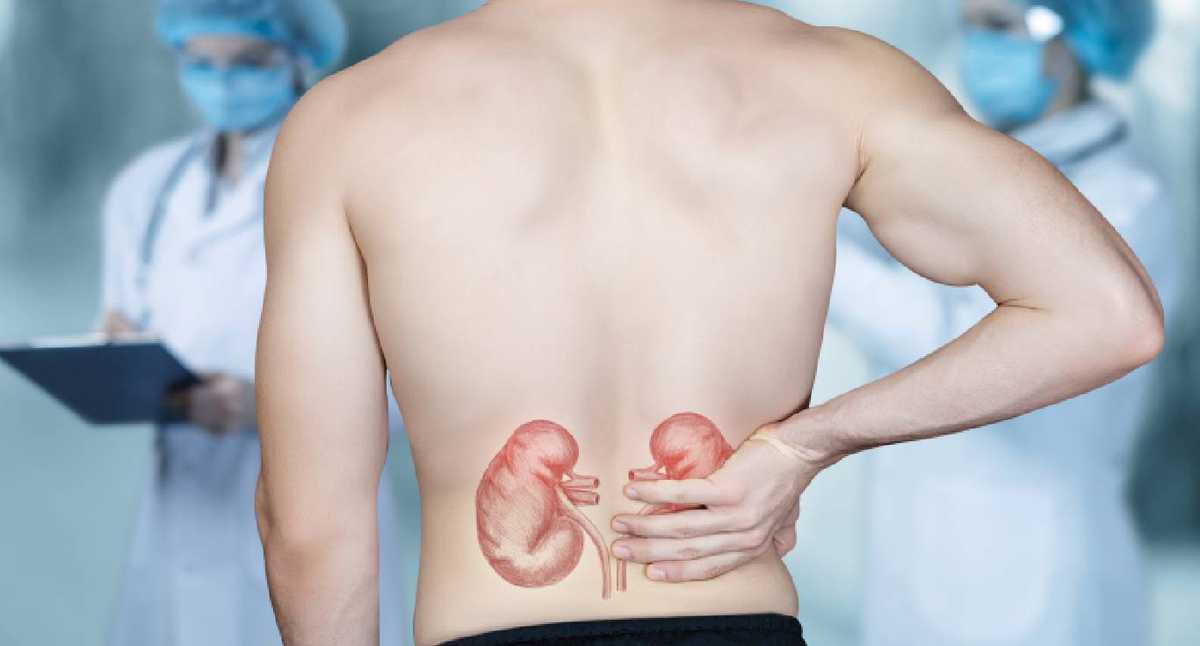A kidney stone usually does not cause symptoms until it begins to move through the kidney or passes into the ureters, the tubes that connect the kidneys and bladder.
If any stones become lodged in the ureters, they can block the flow of urine and cause the kidney to swell and the ureter to spasm, which can be very painful. At that time, you could experience the following signs and symptoms:
- Sharp, stabbing pain in the sides and back, below the ribs
- Pain that spreads to the lower abdomen and groin.
- Pain that comes in waves and fluctuates in intensity
- Pain or burning sensation when urinating
Other signs and symptoms may include the following:
- Pink, red, or brown colored urine
- Cloudy or foul-smelling urine
- Constant need to urinate, need to urinate more frequently, or urinate in small amounts
- Nausea and vomiting
- Fever and chills if there is an infection
The pain caused by a kidney stone may change (for example, it may move to a different location or increase in intensity) as it moves through the urinary tract.
Seek immediate medical attention if you have:
- Pain so severe that you cannot sit upright or find a comfortable position
- Pain accompanied by nausea and vomiting
- Pain accompanied by fever and chills
- Blood in the urine
- Difficulty urinating
Kidney stones often do not have a single defined cause, although various factors can increase the risk of developing them.
Kidney stones occur when the amount of crystal-forming substances, such as calcium, oxalate, and uric acid, in the urine is greater than what the fluids in the urine can dilute. At the same time, the urine may lack substances that prevent the crystals from sticking to each other, creating an ideal environment for kidney stone formation.
Knowing the type of kidney stone you have helps determine its cause, and gives you an indication of how to reduce the formation of more kidney stones.
If possible, try to save the kidney stone if you manage to pass it out of your body so your doctor can analyze it.
The types of kidney stones are:
- Calcium stones. Most kidney stones are calcium stones, usually produced in the form of calcium oxalate. Oxalate is a substance that is produced by the liver on a daily basis or obtained in the diet. Certain fruits and vegetables, as well as nuts and chocolate, are high in oxalate.
- Struvite stones. Struvite stones form from a urinary tract infection. These stones can grow rapidly and become quite large, sometimes with very few symptoms or little warning.
- Uric acid stones. Uric acid stones can form in people who lose too much fluid due to chronic diarrhea or malabsorption, in those who eat a high-protein diet, and in those with diabetes or metabolic syndrome. Certain genetic factors may also increase the risk of developing uric acid stones.
Cystine stones. These stones form in people with an inherited disorder called cystinuria that causes the kidneys to excrete a specific amino acid in large amounts.
Risk factor’s:
Factors that increase the risk of developing kidney stones include:
- Family or personal history. If someone in your family has had kidney stones, you are more likely to have them too. If you’ve already had one or more kidney stones, the risk of forming another is higher.
- Not drinking enough water every day can increase your risk of kidney stones. People who live in hot, dry climates and those who sweat a lot may be at higher risk than others.
- Certain diets. Eating foods high in protein, sodium (salt), and sugar can increase the risk of some types of kidney stones, as can diets high in sodium. Excess salt in the diet increases the amount of calcium that the kidneys must filter and greatly increases the risk of kidney stones.
- A high body mass index, a wide waist circumference, and weight gain may be associated with an increased risk of kidney stones.
- Surgery and digestive diseases. Gastric bypass surgery, inflammatory bowel disease, or chronic diarrhea can cause changes in the digestive process that affect calcium and water absorption, thereby increasing the amounts of stone-forming substances in the urine.
- Other medical conditions such as renal tubular acidosis, cystinuria, hypoparathyroidism, and recurrent urinary tract infections can also increase the risk of kidney stones.
- Certain supplements and medications, such as vitamin C, dietary supplements, laxatives (when used in excess), calcium-based antacids, and certain medications used to treat migraine headaches or depression, can increase the risk of stones kidneys.
Fountain; https://www.mayoclinic.org/es-es/diseases-conditions/kidney-stones/symptoms-causes/syc-20355755https://draurrestanefrologoquito.com/calculos-renales/








